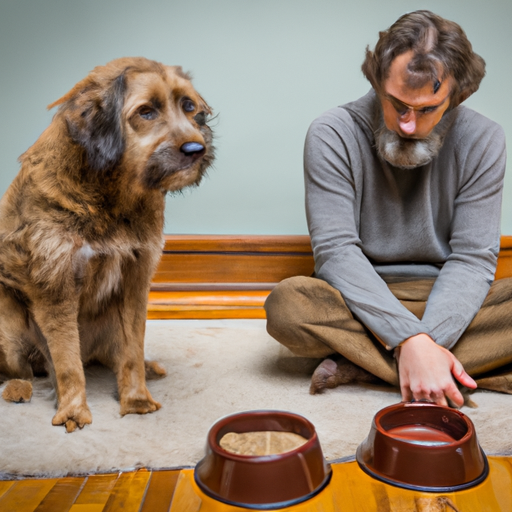Understanding Your Dog’s Eating Habits
Dogs, just like you and me, have their own unique quirks and habits when it comes to eating. Sometimes, these can be a cause for concern. So why does your furry friend refuse to eat? There could be a number of reasons and it’s crucial for you, as their caregiver, to understand them.
- Change in Environment: Dogs can be sensitive to changes in their environment. This could be anything from a new house to a new family member.
- Medical Reasons: Health issues can also affect your dog’s appetite. This could range from dental problems, gastrointestinal issues to more serious conditions.
- Behavioral Issues: Sometimes, the issue isn’t physical but psychological. Stress, anxiety, or depression can cause your dog to lose their appetite.
Monitor Your Dog’s Eating Habits
As their caregiver, it’s up to you to keep an eye on their eating habits. Here’s a checklist you can follow:
- Monitor their daily food intake.
- Check for changes in weight.
- Watch for changes in behavior during meal times.
| Daily Tasks | Checklist |
|---|---|
| Food Intake | ✔️ |
| Weight | ✔️ |
| Behavior | ✔️ |
How to Encourage Your Dog to Eat
You’ve identified the problem, now what can you do about it? Don’t worry, there are plenty of solutions you can try.
- Create a Feeding Schedule: Dogs thrive on routine. Try to feed your dog at the same time every day.
- Make Mealtime Fun: Turn mealtime into a game. Use puzzle feeders or hide their food to stimulate their mind.
- Try Different Foods: Maybe your dog is just bored of their food. Experiment with different flavors or types of food.
The Importance of Veterinary Care
When in doubt, always consult a professional. If your dog’s eating habits don’t improve, it’s time to visit the vet. They can conduct thorough examinations, run diagnostic tests, and provide expert advice.
When to Seek Professional Help
If your dog refuses to eat for more than a day, it’s time to call the vet. Other signs that indicate a need for professional help include:
- Vomiting or diarrhea
- Lethargy or lack of energy
- Weight loss or gain
- Changes in behavior
Frequently Asked Questions
Q: How long can a dog go without eating?
A: Generally, dogs can go without food for three to five days. However, this varies depending on their health, age, and size.
Q: Should I force my dog to eat?
A: No, forcing your dog to eat can cause stress and anxiety. Instead, try to identify the root cause and address it.
Q: Can I give my dog human food to encourage them to eat?
A: While some human foods are safe for dogs, it’s best to consult with your vet before introducing new foods into their diet.



